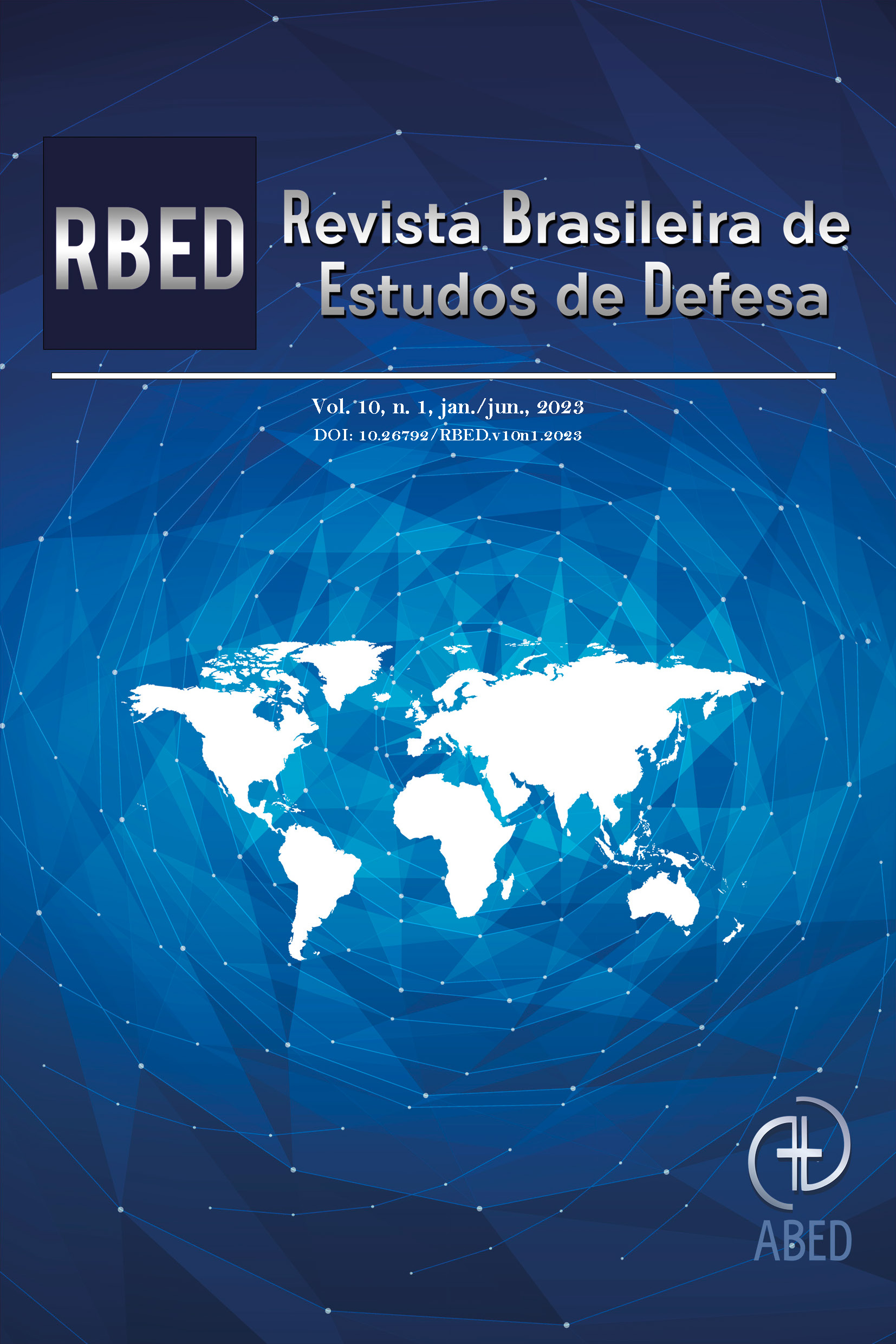The Permanent Structured Cooperation (Pesco) and the European Defence Fund (EDF) as development mechanisms for Germany’s defense industry
DOI:
https://doi.org/10.26792/rbed.v10i1.75317Abstract
This article aims to analyse the Permanent Structured Cooperation (Pesco) and the
European Defence Fund (EDF) as initiatives capable of promoting the German
Defence Industrial Base and implementing the Munich Consensus policies. Since
reunification, the development of the German defence industry has been a matter
of debate due to historical constraints and structural deficiencies which hamper
the pursuit of strategic projects. The 2016 White Paper, however, set ambitious
foreign and security policy guidelines. Moreover, Germany’s vanguard role in the
implementation of Pesco and EDF, the active participation in projects for the development of joint weapons systems within the European Union (EU) and the
sharp increase in its defence budget due to the Russian invasion of Ukraine in
February 2022 suggest a strategic reorientation. In this sense, we highlight the
role of Pesco and EDF, as advanced structures of regional integration, in promoting the German Defence Industrial Base, yet historically neglected due to the
transatlantic alliance and differences in strategic culture among member countries.
Downloads
Downloads
Published
How to Cite
Issue
Section
License
Copyright (c) 2024 Rodrigo Schmidt, Guilherme Thudium

This work is licensed under a Creative Commons Attribution 4.0 International License.
Autores que publicam nesta revista concordam com os seguintes termos:1) Autores mantêm os direitos autorais e concedem à revista o direito de primeira publicação, com o trabalho simultaneamente licenciado sob a Licença Creative Commons Attribution que permite o compartilhamento do trabalho com reconhecimento da autoria e publicação inicial nesta revista.
2) Autores têm autorização para assumir contratos adicionais separadamente, para distribuição não-exclusiva da versão do trabalho publicada nesta revista (ex.: publicar em repositório institucional ou como capítulo de livro), com reconhecimento de autoria e publicação inicial nesta revista.
3) Autores têm permissão e são estimulados a publicar e distribuir seu trabalho online (ex.: em repositórios institucionais ou na sua página pessoal) a qualquer ponto antes ou durante o processo editorial, já que isso pode gerar alterações produtivas, bem como aumentar o impacto e a citação do trabalho publicado (Veja O Efeito do Acesso Livre).





